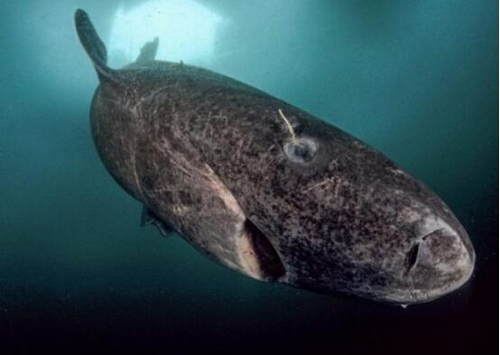(单词翻译:单击)
听力文本
This is Scientific American — 60-Second Science. I'm Christopher Intagliata.
The way we sample much of the world's oceans, to see what's living down there, is pretty basic: Ask fishermen. Or just stick a net down there, and examine what we catch. Neither method is ideal. "Because you basically catch the fish and kill them." Philip Francis Thomsen, a biologist at the Natural History Museum of Denmark. Another drawback, he says, is you can't do it everywhere. "If the bottom is too soft, or too rocky, or there's a coral reef, you don't want to use this invasive method above sensitive habitat."
So Thomsen and his team investigated an alternative, that's been used in freshwater with some success: they sampled the diversity and abundance of marine life using something called environmental DNA, or "eDNA." Basically, genetic material that fish leave behind. "So that is all sorts of bodily fluids that are expelled by the fish during its lifetime." And beyond its lifetime too—like when one fish gets eaten, and its remains get expelled in the fecal matter of another. Bingo: eDNA.

Thomsen and his colleagues sampled seawater at various depths off the southwest coast of Greenland. And then fished out the eDNA in those samples. The researchers were able to identify 26 of the 28 fish families caught in the same area in trawling nets—and at similar abundances, too. They also found a few unique families missed by the nets, and lots of DNA from a species that, in net samples, seemed rare: the Greenland shark.
"We found the shark in almost all of the samples. That is because the shark just avoids the trawl. So here's an example of a species that is actually better surveyed by the environmental DNA than the trawling." The study is in the journal PLoS ONE.
The technique's not quite ready for primetime in the marine setting: for one, ocean currents could transport a species' DNA far from where the fish may actually be found, and give inaccurate measures. But in the future, it might take the fishing out of fish surveys.
Thanks for listening for Scientific American — 60-Second Science Science. I'm Christopher Intagliata.
参考译文
这里是科学美国人——60秒科学。我是克里斯托弗·因塔利亚塔。
想知道海底中生活着什么生物,我们从海底取样的方式非常简单:寻问渔夫。或者直接放个网,看看有什么收获。但是这两种方法都不理想。“因为从根本上说,你是先抓住鱼,然后杀死它们。”菲利普·弗朗西斯·汤姆森是丹麦自然历史博物馆的生物学家。他表示,另一个缺点是这种方法并不是在所有的地方都适用。“如果海底非常软,或是岩石很多,或是有珊瑚礁,那就不能在这些敏感的栖息地使用这种入侵式的方法。”
所以汤姆森和他的团队研究了一种替代方法,这种方法在淡水领域取得了一些成效:他们利用“环境DNA”(即eDNA)来采集海底生物的多样性及丰富性。环境DNA,就是鱼类留在环境中的遗传物质。“那是鱼类在一生中排出的各种体液。”不只是一生,当鱼被吃掉时,它仍会以排泄物的方式继续排出体液。没错,这就是环境DNA。
汤姆森和他的同事在格陵兰岛西南部海域采集了不同深度的海水。然后提取出这些海水样本中的环境DNA。这使研究人员能够识别在同一海域用拖网捕到的28种鱼类的其中26种,而且丰富度也非常相似。研究人员还发现了一些渔网没有捕到的独特鱼类,大量DNA来自对渔网样本来说非常罕见的物种,这个物种就是格陵兰鲨鱼。
“我们几乎在所有样本中都发现了格陵兰鲨鱼的踪迹。那是因为格陵兰鲨鱼可以避开渔网。所以,这就是环境DNA这一研究方法优于拖网捕鱼方法的例子。”该研究结果发表在《公共科学图书馆·综合》杂志上。
但是这项技术对于海洋环境尚不成熟:例如,洋流可能会将鱼类的DNA冲到距离鱼类栖息地很远的地方,导致措施不准确。但是在未来,这项技术或许可以让不利用捕鱼来进行鱼类调查成为可能。
谢谢大家收听科学美国人——60秒科学。我是克里斯托弗·因塔利亚塔。
译文为可可英语翻译,未经授权请勿转载!
重点讲解
重点讲解:
1. leave behind 留下;余留;
例句:A snail leaves behind a slivery trail as it moves.
蜗牛爬行时,会留下一条银白色的痕迹。
2. all sorts of 各种各样的;形形色色的;
例句:All sorts of difficulties cropped up.
各种各样的困难意想不到地出现了。
3. fish out (从…中)取出,拿出,拖出;
例句:Kelly fished out another beer from his cooler.
凯莉从他的冷藏箱里又拿出一瓶啤酒。
4. be ready for 准备好的;胜任的;
例句:Now they are ready for the steeple chase.
现在他们已准备好进行障碍赛跑。


